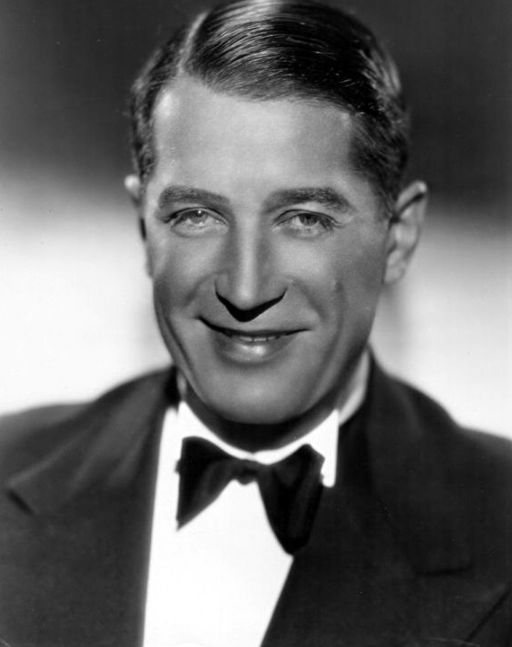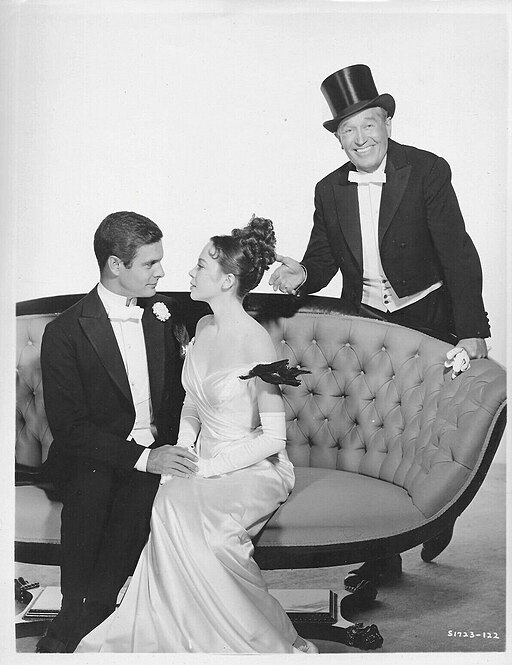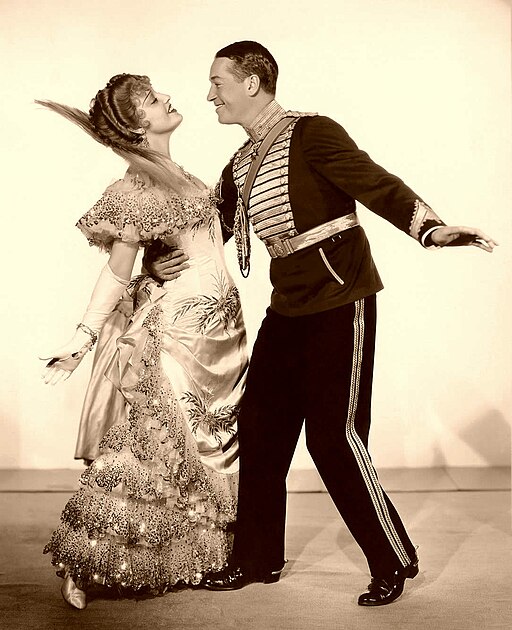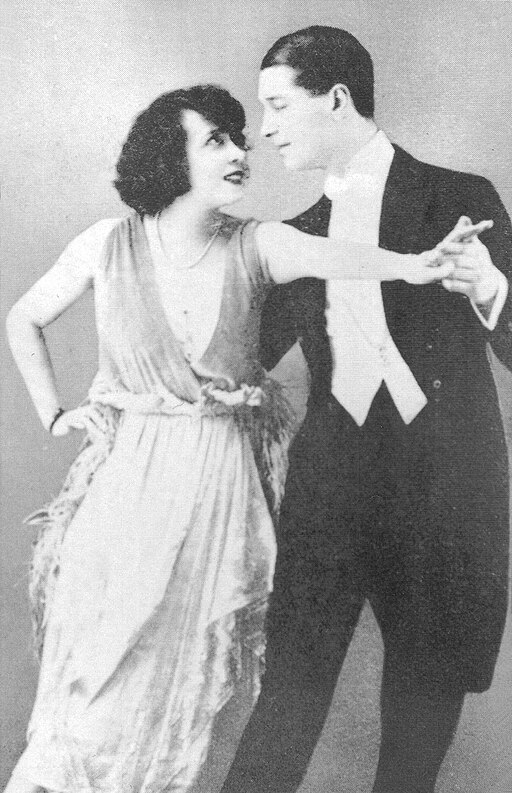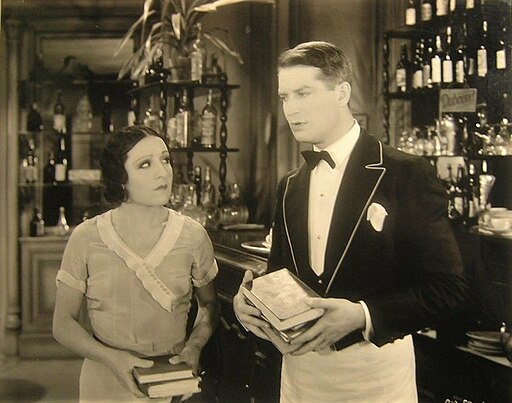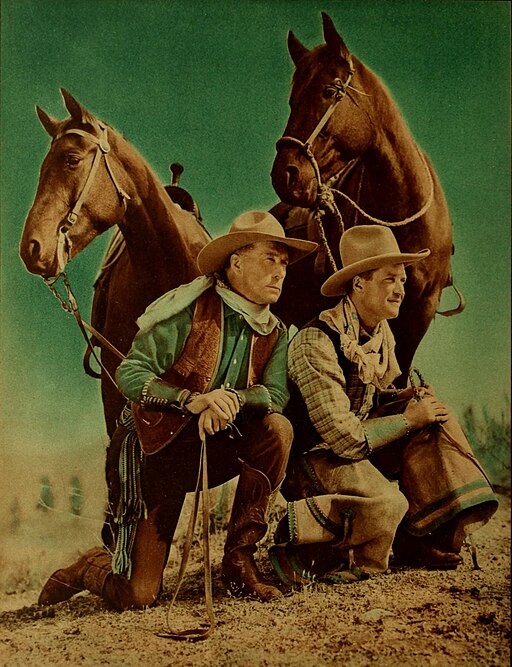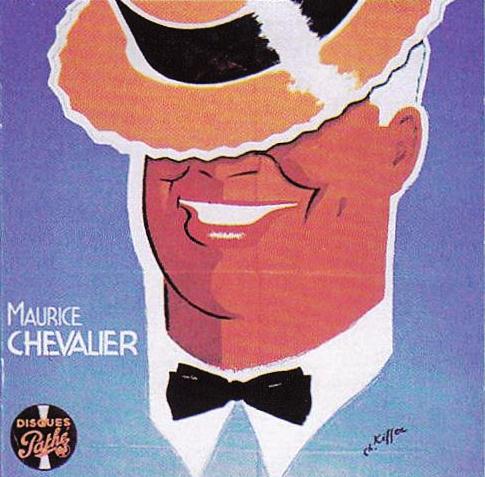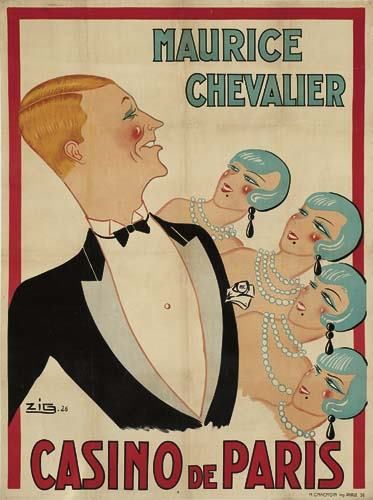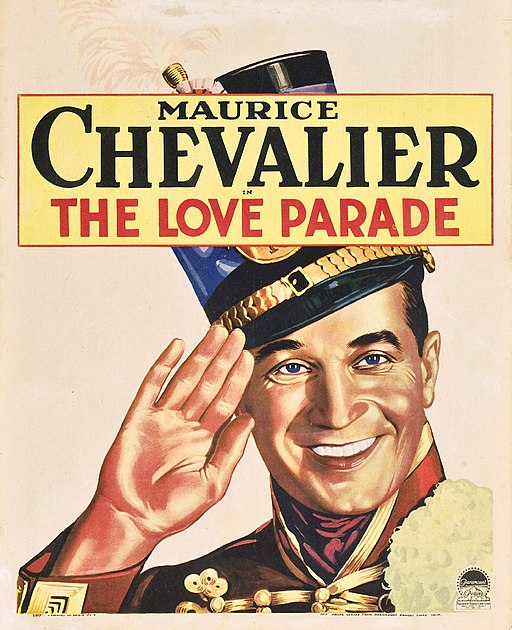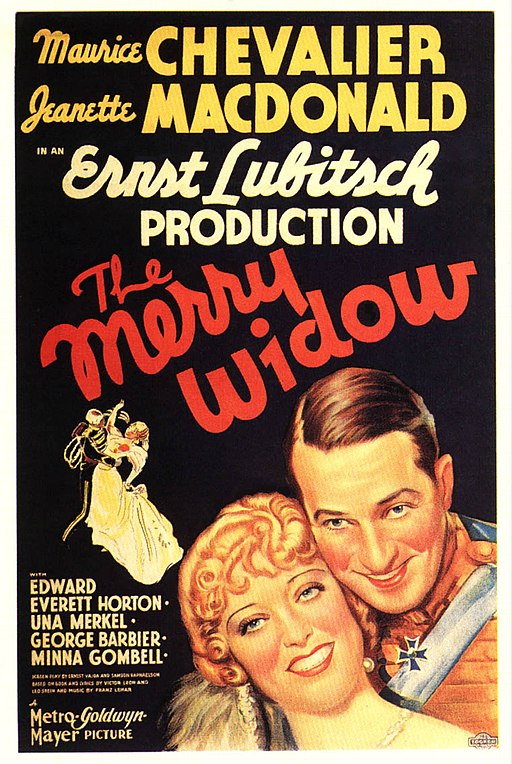Maurice Chevalier
back| Full Name | Maurice Auguste Chevalier |
| Stage Name | Maurice Chevalier |
| Born | September 12, 1888 |
| Birthplace | Paris, France |
| Died | January 1, 1972 |
| Buried | Cemetery of Marnes-la-Coquette, Hauts-de-Seine, France |
| Married to | Yvonne Vallée (1927–1932, divorced) |
| Children | None |
| Notable films | The Love Parade (1929) - The Big Pond (1930) - Love me Tonight (1932) - The Merry Widow (1934) - Gigi (1958) |
Maurice Chevalier
The French Troubadour
Maurice Chevalier's career spanned over half a century, beginning as a cabaret singer and comedian in Paris before moving to Hollywood in the late 1920s. His charm and French accent made him a beloved figure in American cinema. He served in World War I, where he was wounded and captured by German troops, spending two years as a prisoner of war.
After his success in Hollywood, Chevalier returned to France, where he continued to perform in films and on stage. Despite facing controversy during World War II for his performances in occupied France, he was later exonerated of collaboration accusations.
He was known for his signature straw boater hat and tuxedo. In 1958, Chevalier was awarded a Special Academy Award for his contributions to the world of entertainment. He continued performing into his old age, becoming a cherished symbol of French charm and sophistication.
Related
Maurice Chevalier
Biography and Overview of his Career
Born on September 12, 1888, in Paris, France, Maurice Auguste Chevalier grew up in a working-class family. His father was a house painter, and his mother was a lacemaker. From a young age, Maurice showed a flair for entertainment. He began his career as a singer and comedian in Parisian cafés and music halls. His early years were marked by struggle and perseverance as he honed his craft in the vibrant Parisian entertainment scene.
Path Towards Success
Chevalier's career took a turn when he was discovered by the renowned French actress Mistinguett at the Folies Bergère. He became her protégé, and together they performed in various revues, catapulting Maurice into the spotlight. World War I interrupted his rising career when he was drafted into the French army. He was captured by German forces and spent two years as a prisoner of war, an experience that deeply impacted him.
After the war, Chevalier returned to stage and quickly regained his popularity. His big break came when he was invited to Hollywood in the late 1920s. With the advent of talking movies, his French accent and singing talent made him an instant hit in films like "The Love Parade" and "The Smiling Lieutenant."
Personal Life and Marriages
In 1927, Chevalier married Yvonne Vallée, a French actress. Their marriage, however, ended in divorce in 1932. While he never remarried, Chevalier had several significant relationships throughout his life, most notably with the actress Nita Raya.
Beyond his love for performing, Chevalier was passionate about golf and was known for his stylish dressing, particularly his trademark straw boater hat and tuxedo. His hobbies and interests often reflected the elegance and charm he exuded on stage and screen.
Later Years and Death
Chevalier's career witnessed a temporary decline during World War II due to his performances in occupied France, but he managed to restore his reputation post-war. He continued to perform in movies and on stage into his old age, embodying the spirit of French sophistication.
Maurice Chevalier passed away on January 1, 1972, in Paris, at the age of 83. The cause of death was primarily due to complications from heart disease. He was laid to rest in the Cemetery of Marnes-la-Coquette, Hauts-de-Seine, near Paris.
Legacy
Maurice Chevalier's legacy is that of a trailblazer in the entertainment world, a symbol of French charm, and a master of performance. His influence on both French and American cinema and music is indelible. His songs, style, and charismatic performances have left a lasting imprint on the world of entertainment. Chevalier remains an enduring symbol of the Golden Age of Hollywood and the rich cultural tapestry of French music hall entertainment.
Maurice Chevalier on The Ed Sullivan Show:
The Strength of Maurice Chevalier’s Performances:
Maurice Chevalier's acting style was a unique amalgamation of charm, charisma, and a distinctively French flair, making him a standout figure in both American and French cinema. His approach to acting was marked by several key characteristics:
Effervescent Charm
Chevalier possessed an innate charm that radiated through his screen presence. His smile, often accompanied by a twinkle in his eye, was infectious and drew audiences into his performances. This charm was not just superficial; it was deeply ingrained in his persona, making him both relatable and endearing to viewers.
Musicality and Vocal Style
A significant aspect of Chevalier's acting was his singing ability. He had a melodic voice, well-suited to the musical films of his era. His singing was characterized by a light, airy quality, imbued with a playful yet sincere tone. Songs like "Thank Heaven for Little Girls" from "Gigi" and "Louise" exemplify his ability to convey emotion and narrative through song.
Physicality and Movement
Chevalier's physicality was another vital component of his style. He moved with a certain suaveness and ease, often incorporating dance into his roles. His movements were graceful yet unpretentious, adding to his charismatic on-screen persona.
Expressive Facial Expressions
His facial expressions were remarkably expressive. Chevalier could convey a range of emotions, from joy to sorrow, with subtle shifts in his facial expressions. This ability allowed him to perform in both comedic and dramatic roles effectively.
Comedic Timing and Light-Heartedness
Chevalier had a natural talent for comedy. His comedic timing was impeccable, often delivering lines with a playful, sometimes cheeky, undertone. His performances often had a light-hearted, almost whimsical quality, which made them highly enjoyable and timeless.
The French Touch
What truly set Chevalier apart was his distinctly French persona. He brought a piece of French culture to every role, whether through his accent, mannerisms, or cultural references. This "French touch" made him a novel and exotic figure in Hollywood, particularly at a time when international stars were less common in American cinema.
Emotional Depth
Despite often being cast in light-hearted roles, Chevalier demonstrated a capacity for emotional depth. In films like "Fanny," he showed an ability to portray more complex, nuanced characters, proving that his talents extended beyond singing and comedy.
Adaptability
Throughout his career, Chevalier adapted to the changing styles and demands of the film industry. From silent films to talkies, and from black-and-white to color, he evolved while maintaining his unique charm and appeal.
Memorable Quotes from Maurice Chevalier:
On Age and Youth:
"Old age isn't so bad when you consider the alternative."
On Happiness:
"A good cigar is as great a comfort to a man as a good cry to a woman."
On Love:
"Many a man has fallen in love with a girl in a light so dim he would not have chosen a suit by it."
On Success:
"If you wait for the perfect moment when all is safe and assured, it may never arrive. Mountains will not be climbed, races won, or lasting happiness achieved."
On Fame:
"The applause is a receipt, not a bill."
On Life's Journey:
"I was an apprentice cook, an apprentice pastry chef, an apprentice tailor. But I was never an apprentice lover. I was always a professional lover."
Reflecting on Career Choices:
"I'd rather be a poor man in a garret with plenty of books than a king who did not love reading."
Songs by Maurice Chevalier:
- "Thank Heaven for Little Girls": Perhaps his most iconic song, featured in the film "Gigi" (1958). It showcases his whimsical and charming style and remains a classic.
- "Louise": From the movie "The Innocents of Paris" (1929), this song became hugely popular and is one of his signature tunes.
- "Mimi": Sung in the film "Love Me Tonight" (1932), this song exemplifies Chevalier's playful and romantic singing style.
- "Valentine": This song became one of Chevalier's early hits in France and remains one of his most enduring chansons.
- "Sweepin' the Clouds Away": Featured in the film "Paramount on Parade" (1930), this song is another example of his cheerful and upbeat musical style.
- "You Brought a New Kind of Love to Me": From "The Big Pond" (1930), this song was a hit in the United States and showcases his ability to blend French charm with American jazz influences.
- "I'm Glad I'm Not Young Anymore": Another memorable song from "Gigi," reflecting his views on aging with humor and grace.
- "Isn't It Romantic?": Also from "Love Me Tonight," this song became a standard, covered by many other artists over the years.
- "The Last Time I Saw Paris": Though not originally sung by Chevalier, he made a popular recording of this song, which reflects the nostalgia and love for Paris.
- "Prosper (Yop La Boum)": A fun and lively song, reflecting the jovial side of Chevalier's music repertoire.
Awards and Recognition:
Academy Awards
- 1929/1930: Nominated for Best Actor for his performance in "The Love Parade." This was a significant achievement, as it was during the early years of the Academy Awards.
- 1958: Received an Honorary Academy Award for his contributions to the world of entertainment. The award recognized his distinguished career in film and his status as an international ambassador for song and comedy.
Other Honors and Awards
- Chevalier of the Légion d'Honneur: Chevalier was made a Chevalier (Knight) of the Légion d'Honneur, one of France's highest honors, recognizing his contributions to French culture and the arts.
- Rosette of the Légion d'Honneur: He was awarded the Rosette for his service in World War I.
- Medal of the City of Paris: This was awarded to him for his immense contributions to the arts and the cultural life of Paris.
- Special Tony Award (1955): Chevalier received a Special Tony Award in 1955 for his contributions to the theatre, despite not being primarily known for his work on Broadway. This award highlighted his versatility and international appeal.
Tributes and Legacy
- Walk of Fame: Chevalier has two stars on the Hollywood Walk of Fame, one for motion pictures and another for his work in the recording industry. These stars are a testament to his impact on both film and music.
- Posthumous Tributes: Various tributes have been paid to Chevalier after his death, recognizing his lasting influence in the entertainment world. These include retrospectives, documentary features, and tributes at film festivals and award ceremonies.
Significance of the Movie ‘The Love Parade’ for his Career:
"The Love Parade" holds a special significance in Maurice Chevalier's career, marking a pivotal point that elevated him to international stardom. Released in 1929, this film was significant for several reasons:
- Introduction to Talkies: "The Love Parade" was Chevalier's first American film and one of the early sound films, or "talkies," in cinema history. The advent of sound in movies was a revolutionary shift, and Chevalier's foray into this new era was both timely and impactful.
- Hollywood Debut: This film marked Chevalier's Hollywood debut. His performance as Count Alfred Renard, a charming and witty diplomat, immediately caught the attention of both audiences and critics in the United States. It established him as a major player in the American film industry.
- Musical Performance: "The Love Parade" was a musical, a genre that was gaining immense popularity with the introduction of sound in films. Chevalier's background in music halls and his singing talent were showcased splendidly in this film, leading to many more musical roles in his career.
- Oscar Nomination: Chevalier received an Academy Award nomination for Best Actor for his role in "The Love Parade." This recognition affirmed his talent and helped cement his status as an international star.
- Working with Ernst Lubitsch: The film was directed by the renowned Ernst Lubitsch, known for his sophisticated and witty filmmaking style. Lubitsch's collaboration with Chevalier was highly successful, leading to more collaborations in films like "The Smiling Lieutenant" and "One Hour with You."
- Screen Persona Development: "The Love Parade" helped establish Chevalier's screen persona as a suave, charming, and slightly mischievous gentleman. This persona became a hallmark of his career and was beloved by audiences.
- Gateway to More Roles: The success of "The Love Parade" opened doors for Chevalier in Hollywood. It led to a series of successful films in the 1930s where he often played romantic, singing leads.
- Influence on Musicals: The film's success contributed to the popularity of musicals in Hollywood during the 1930s. Chevalier's performances in these early musicals influenced the genre's development.
Movies featuring Maurice Chevalier:
1920s
- 1929, "Innocents of Paris": Chevalier's first American film where he plays a Parisian street singer who becomes a star.
1930s
- 1930, "The Big Pond": Chevalier portrays a French tutor in America who falls in love with his pupil, played by Claudette Colbert.
- 1930, "Playboy of Paris": He stars as a Parisian playboy who unexpectedly falls in love with a waitress.
- 1931, "The Smiling Lieutenant": A romantic comedy where Chevalier, a lieutenant, must choose between his violinist girlfriend and a princess.
- 1932, "Love Me Tonight": A tailor, played by Chevalier, poses as a baron and falls in love with a princess.
- 1932, "One Hour with You": Chevalier and Jeanette MacDonald play a married couple tempted by infidelity.
- 1934, "The Merry Widow": A romantic musical where Chevalier, a prince, is tasked with wooing a wealthy widow to improve his country's financial situation.
- 1935, "Folies Bergère de Paris": Chevalier plays a dual role as a famous entertainer and a businessman who look alike.
- 1936, "The Beloved Vagabond": He portrays a wandering minstrel in this romantic drama.
- 1937, "The Man of the Hour": Chevalier is a soldier who becomes a hero but struggles with his newfound fame.
1940s
- 1947, "Copacabana": A nightclub comedy where Chevalier makes a guest appearance as himself.
1950s
- 1957, "Love in the Afternoon": Chevalier plays the father of Audrey Hepburn's character in this romantic comedy.
- 1958, "Gigi": In one of his most famous roles, Chevalier plays Honoré Lachaille, an aging playboy in Belle Époque Paris.
1960s
- 1960, "Can-Can": Set in Montmartre, Paris, Chevalier plays a judge caught between enforcing the law and his attraction to a dancer.
- 1960, "Pepe": A cameo appearance in this comedy film.
- 1961, "Fanny": Chevalier plays Panisse, an older man who marries a young woman in this romantic drama.
- 1962, "Jessica": He appears as a father in a rural Italian village in this comedy-drama.
- 1967, "Monkeys, Go Home!": Chevalier plays a priest in this Disney comedy about a young American inheriting an olive farm in France.
1970s
- 1970, "The Aristocats": Although not a live-action film, Chevalier sang the title song in this animated Disney classic.

